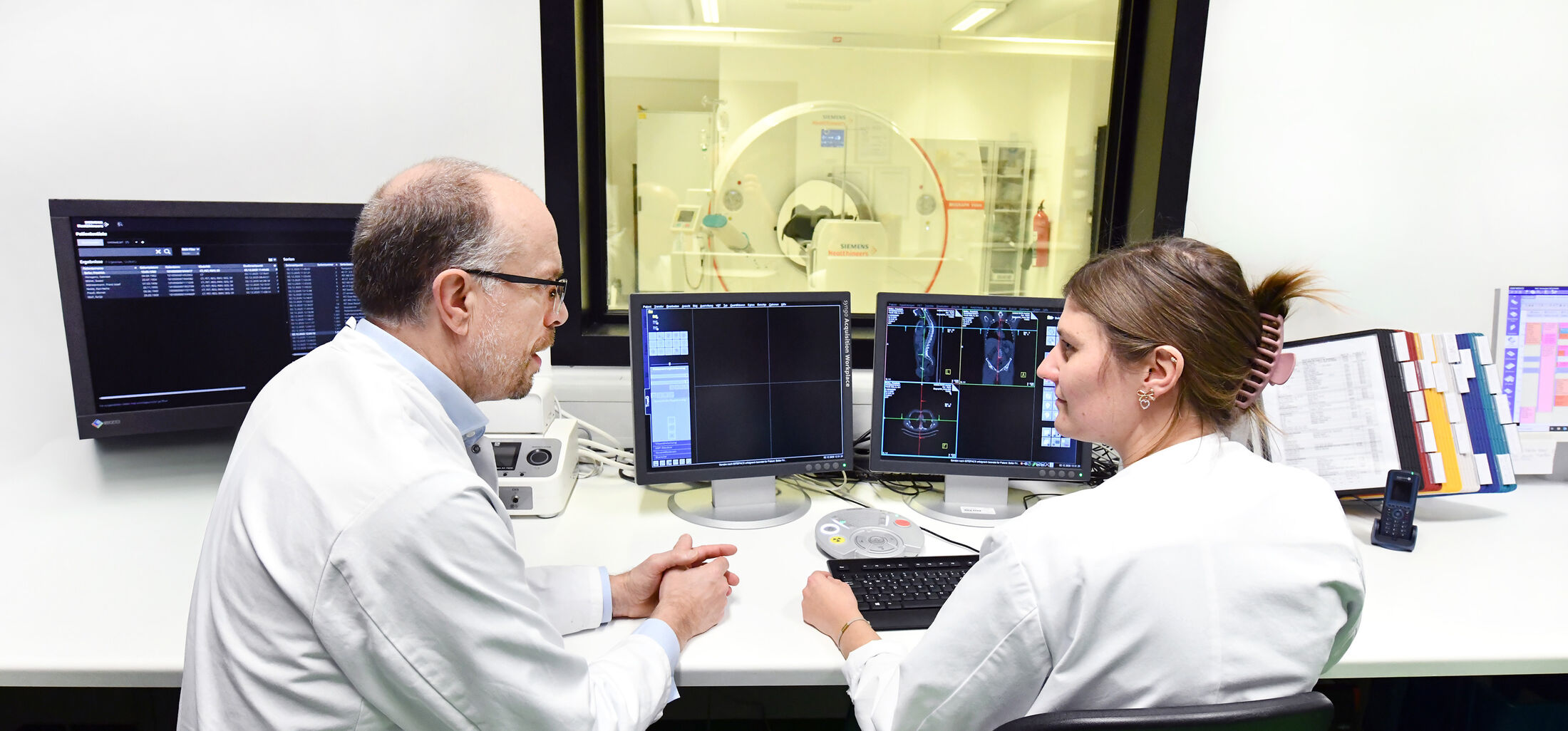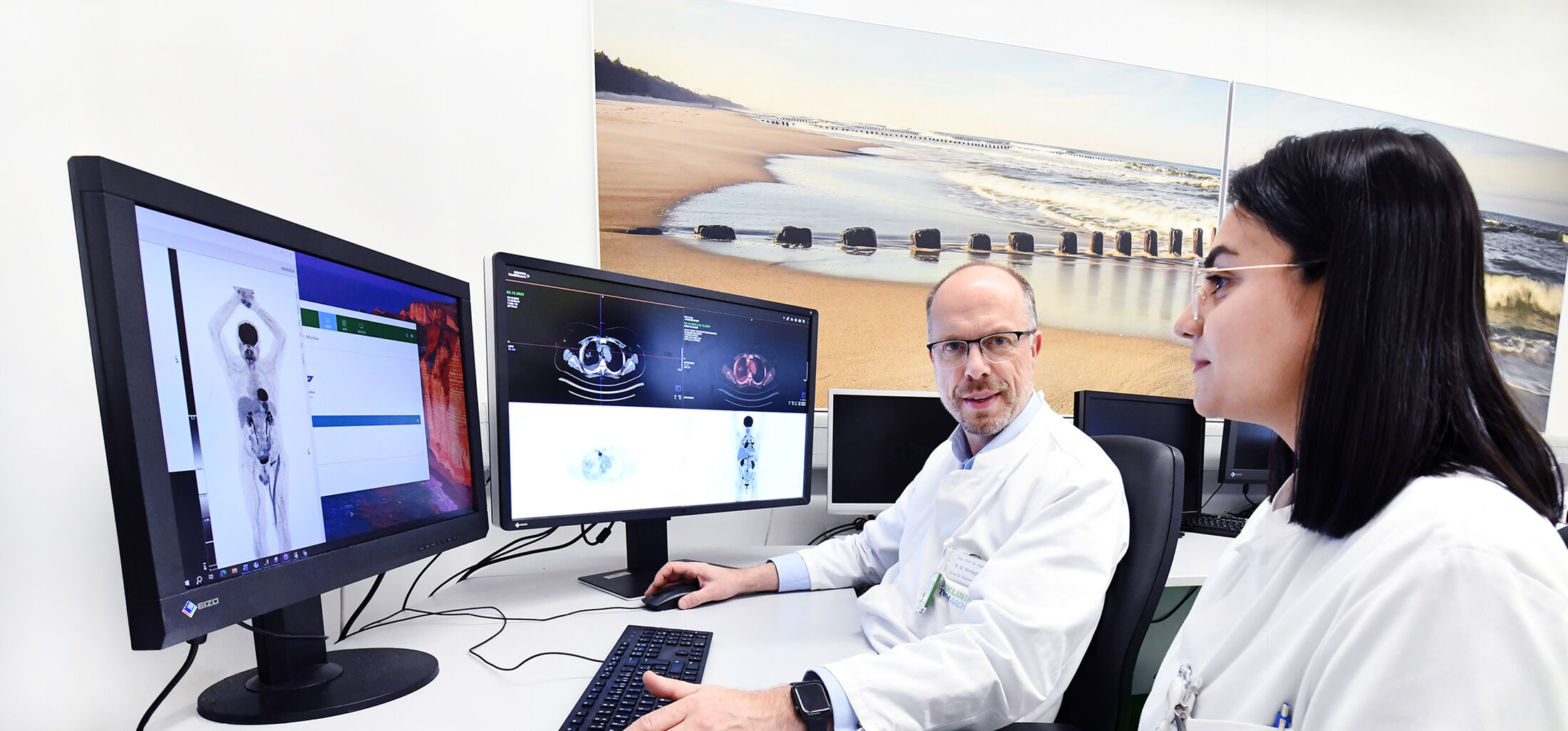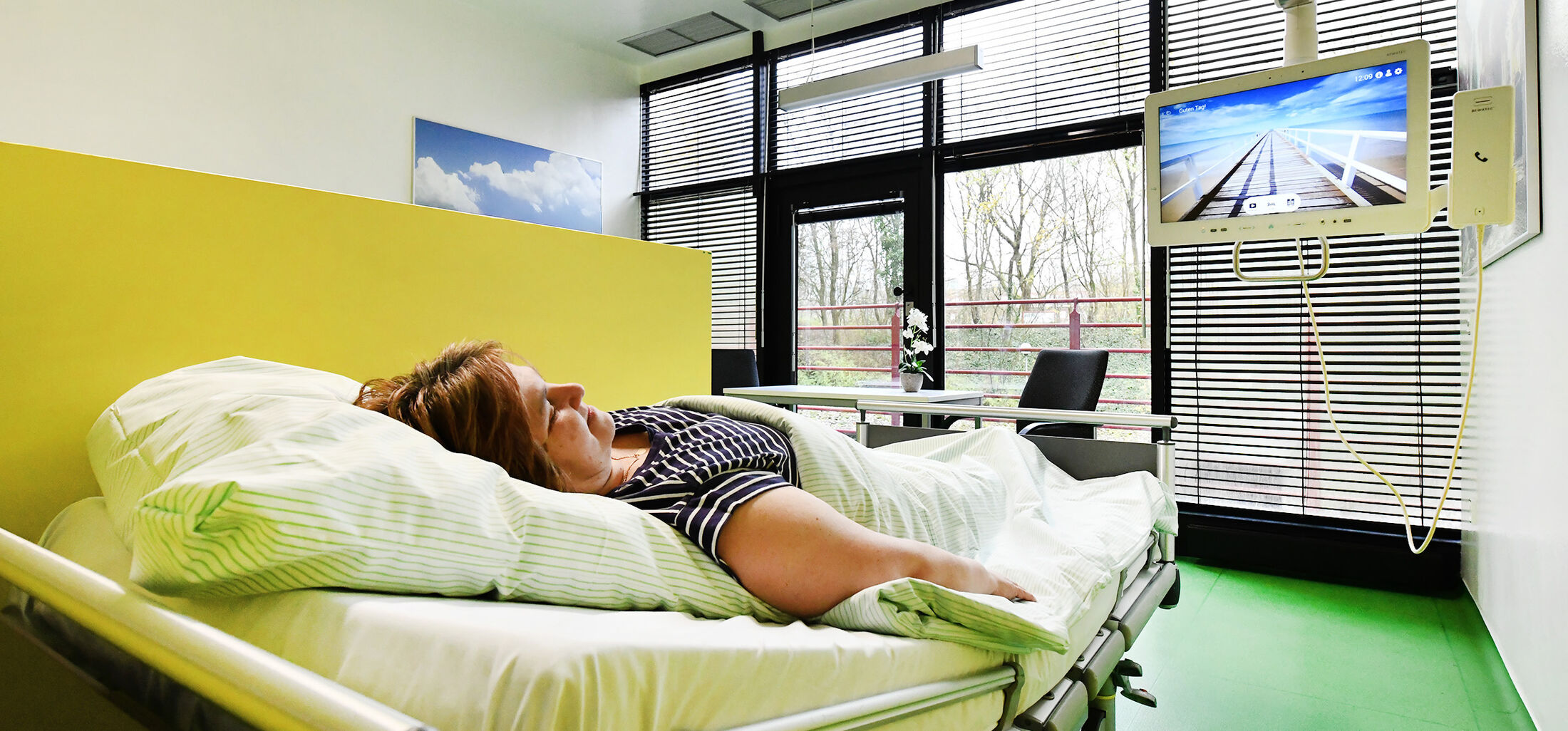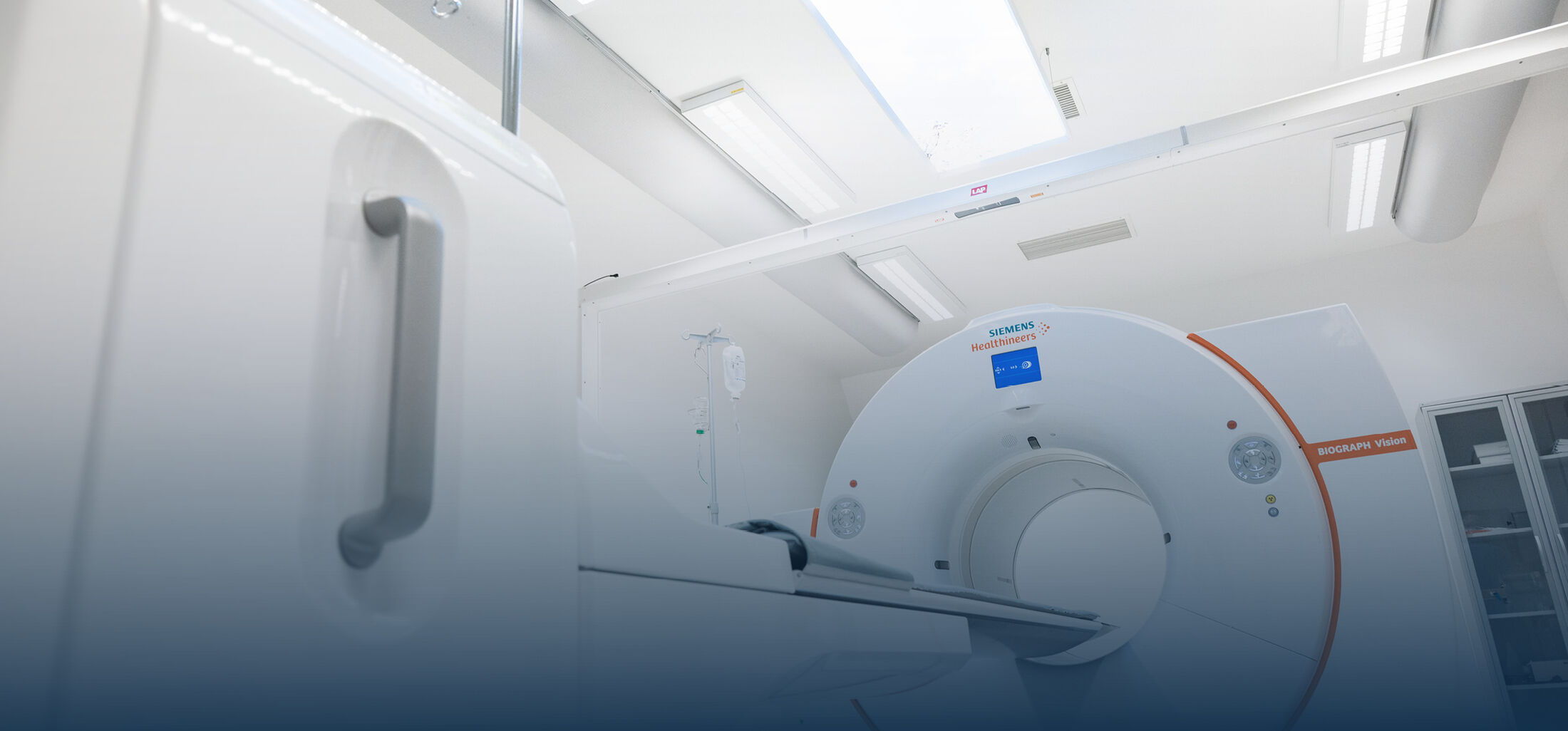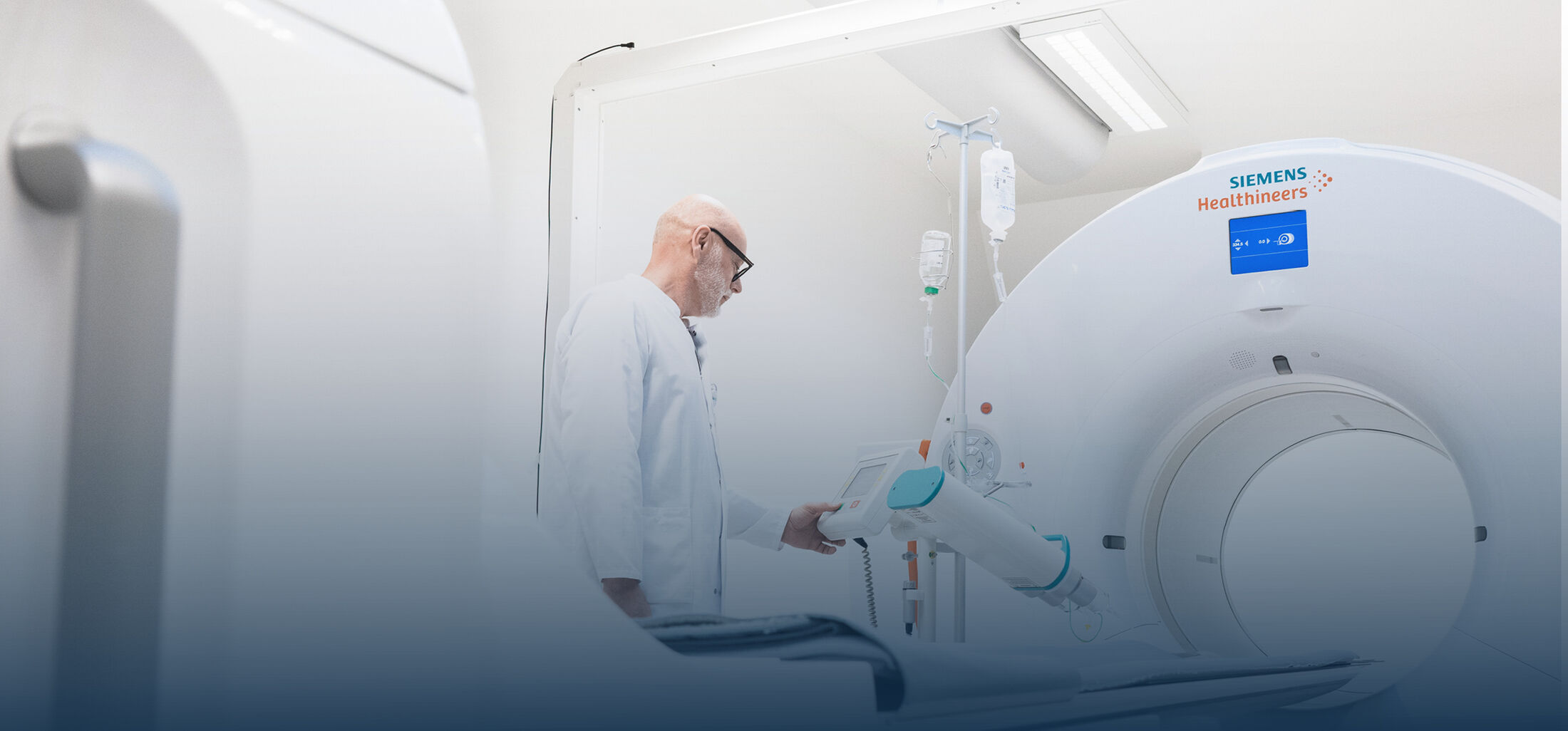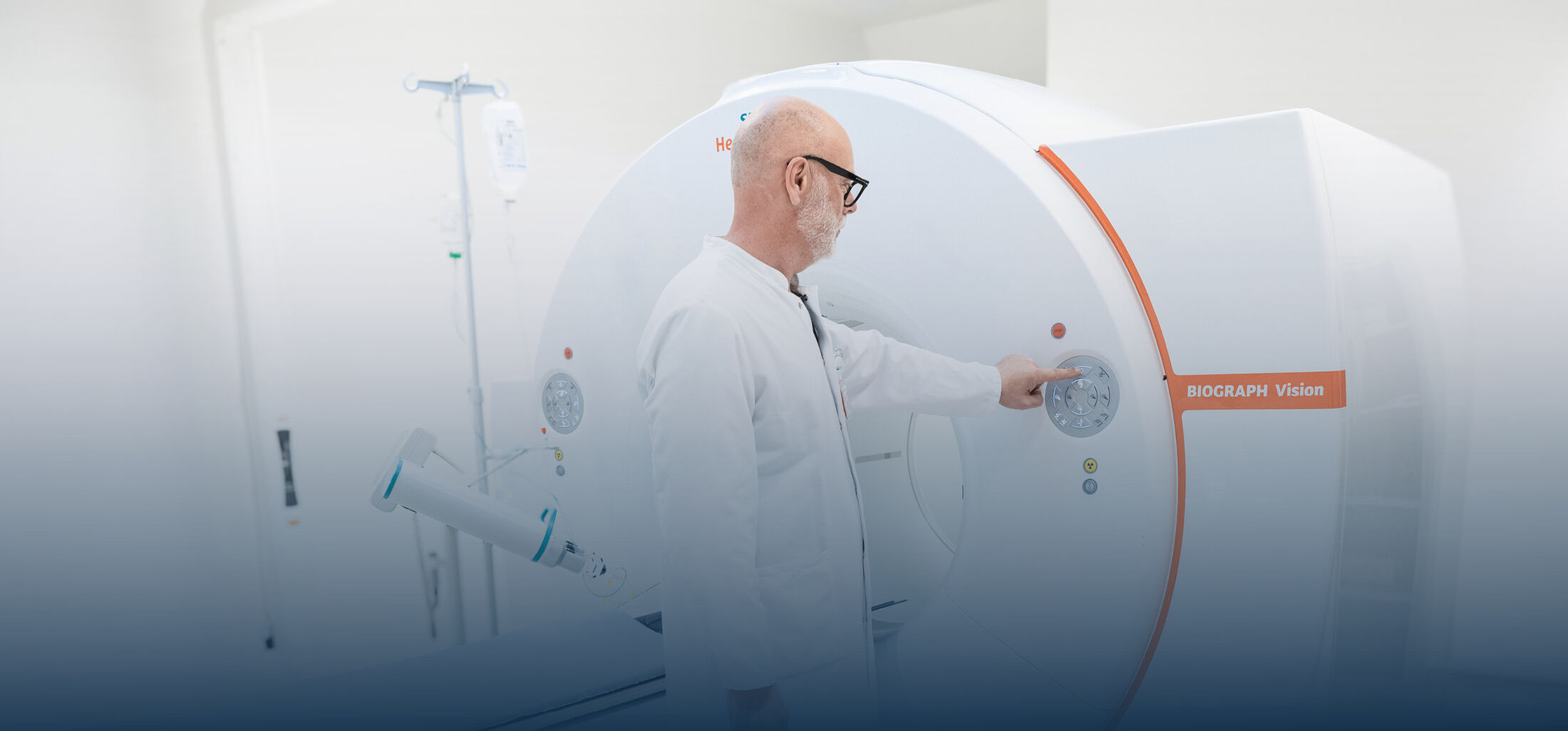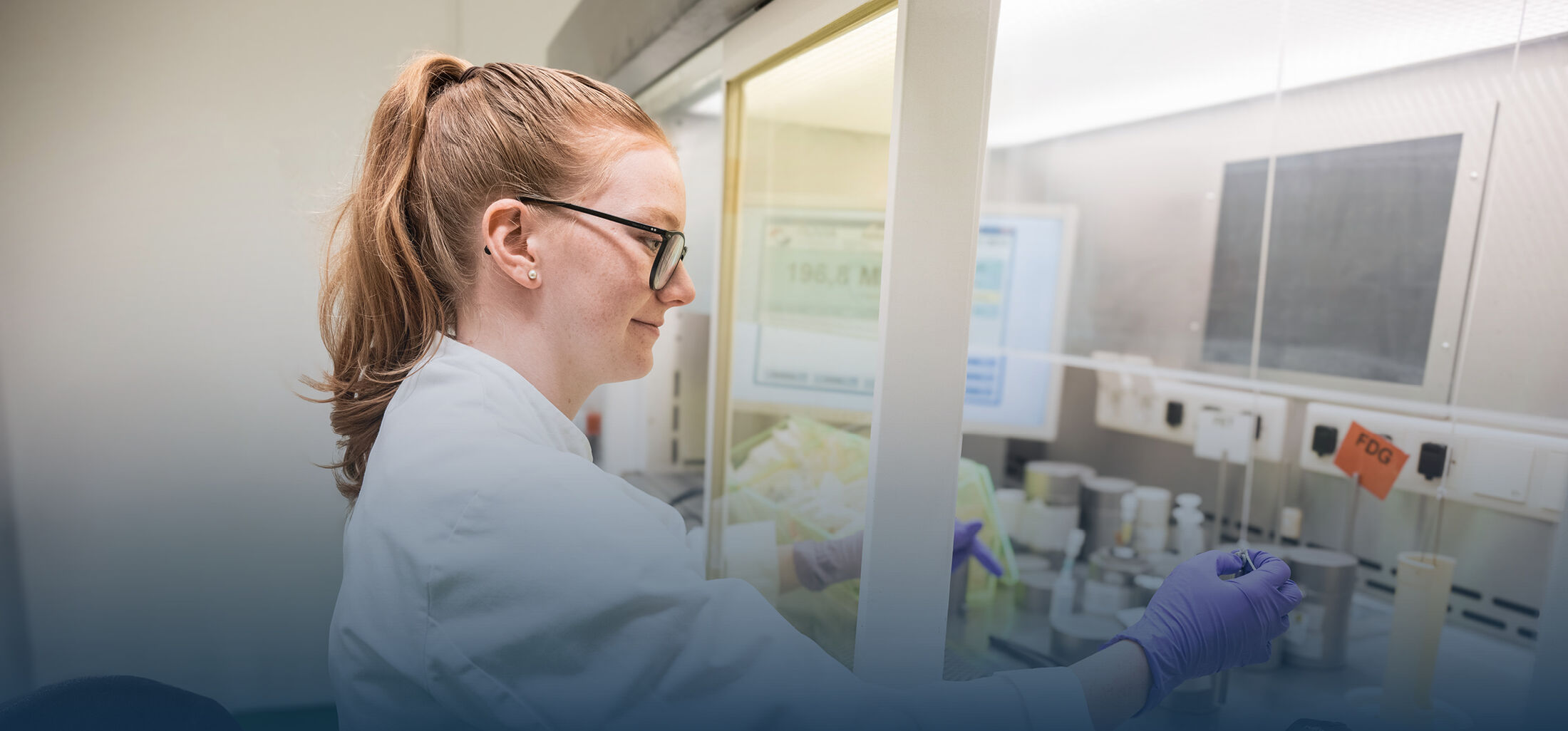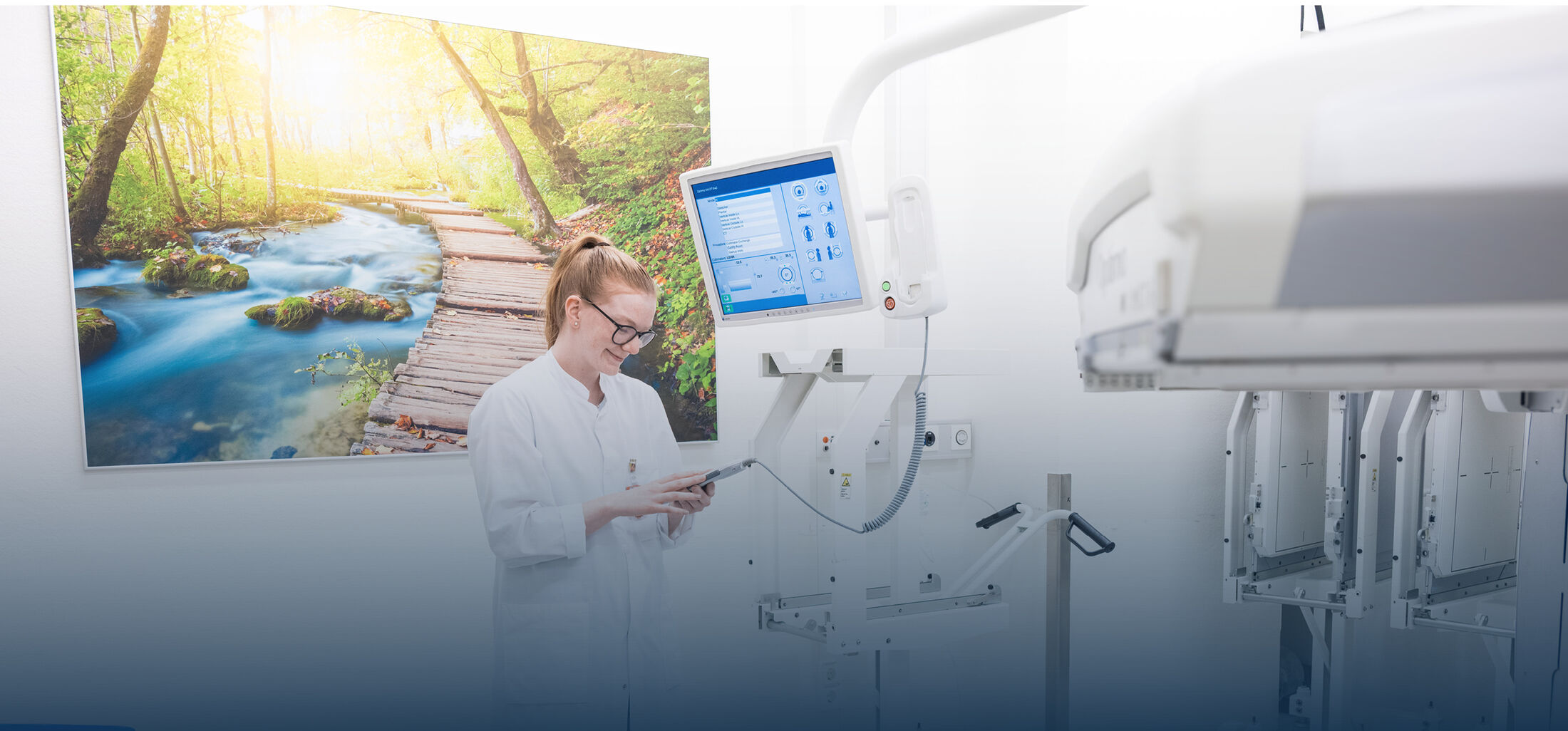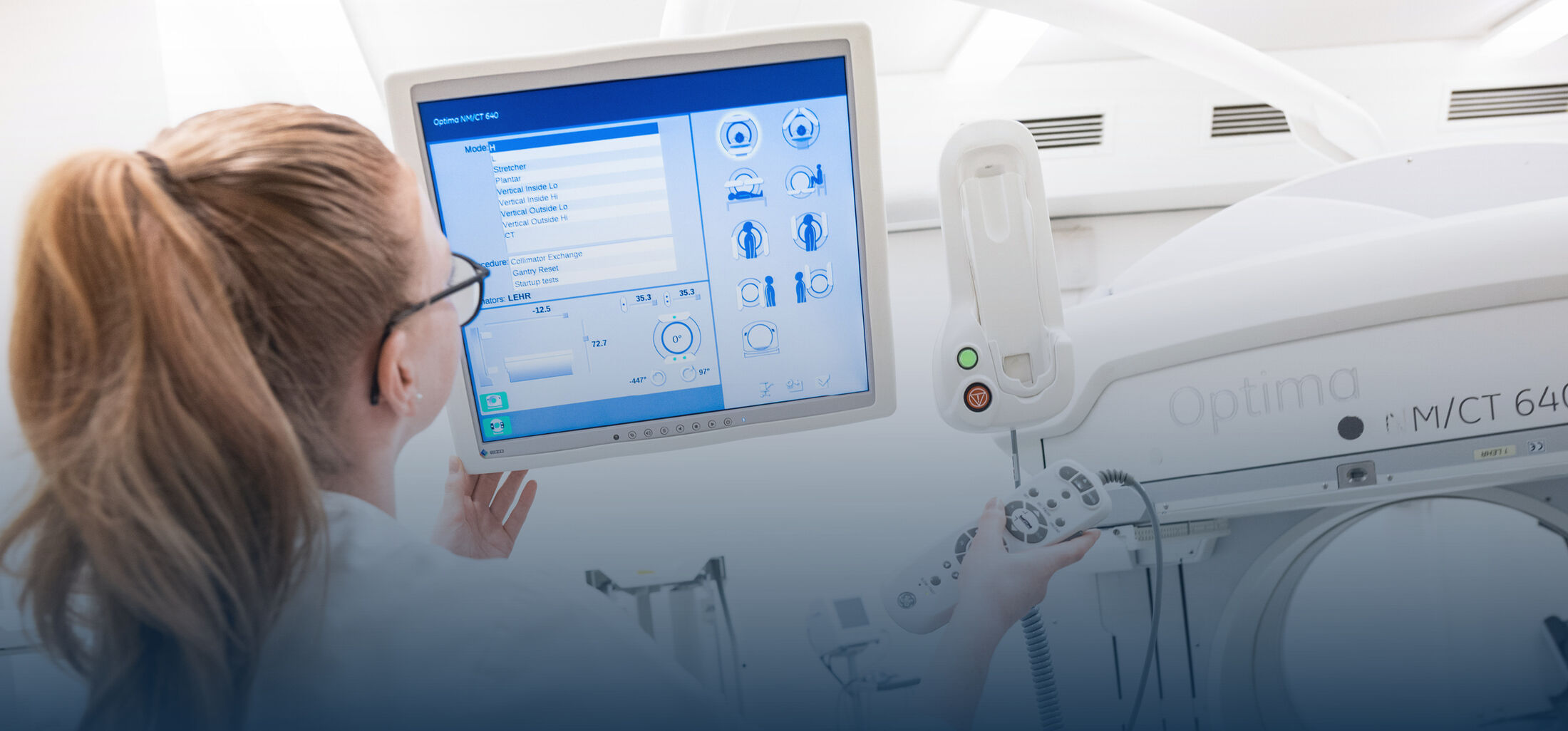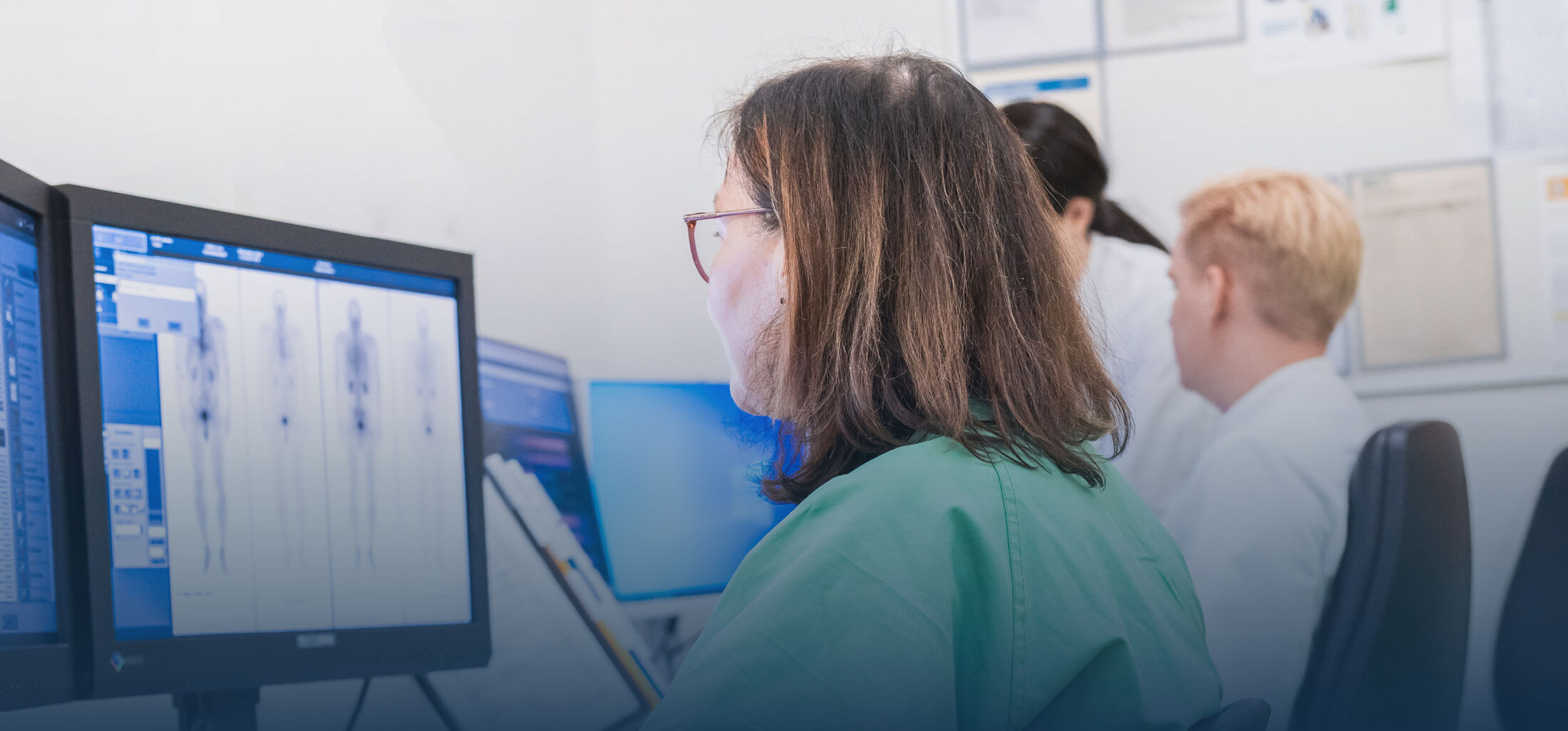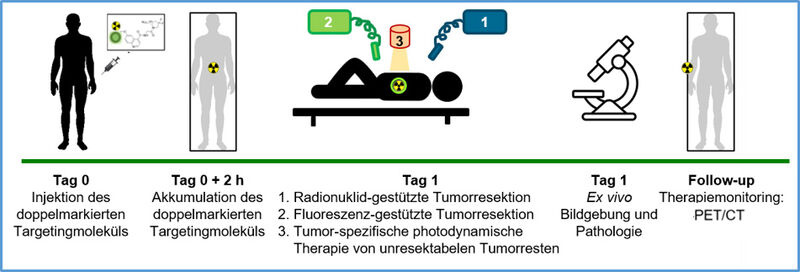Research Group Translational Nuclear Medicine
Group leader:
Univ.-Prof. Dr. Dr. med. Susanne Lütje
sluetjeukaachende
Tel.: 0241 80-85194
Overview:
Translational research forms the interface between basic research and clinical research and is one of the main focus areas of the Department of Nuclear Medicine.
The Translational Nuclear Medicine research group is dedicated to the development and characterization of new targeting molecules to improve nuclear medicine diagnostics and therapy of oncological diseases. Research projects focus on oncological and immunological targets such as PSMA, PARP, PD-(L)1, CTLA-4, and TIGIT.
The translational approach is central, starting with the synthesis and radiolabeling of new targeting molecules, through in vitro and in vivo characterization in (tumor) cell models and animal models, to clinical application in patients.
Focus areas:
1. Development and translation of tracer molecules for imaging purposes (staging, follow-up, therapy monitoring)
An important part of nuclear medicine research is the optimization of existing tracer molecules and the development of new tracer molecules for positron emission tomography/computed tomography (PET/CT) imaging. The optimization of existing tracers such as 18F-FDG, 68Ga-PSMA, 18F-PSMA or 68Ga-DOTATOC, which are currently widely used clinically, includes for example changes in the linker structure, the lipophilicity profile or the targeting molecule itself, which can significantly influence the pharmacokinetics of these molecules and thus significantly alter their biodistribution and tumor accumulation capacity. In addition, inspired by clinical needs, new targets with high potential for PET/CT imaging are being explored.
One example of this is in the field of immuno-oncology: immune checkpoint therapies have proven to be very promising for various malignancies. In order to select patients for this new therapy, we are developing innovative tracer molecules that enable checkpoint-specific PET/CT imaging. The goal is to non-invasively assess the entire tumor load in a patient with regard to target expression, aiding patient selection for novel immune therapies.
2. Development and translation of tracer molecules in the field of tumor surgery
The aim of this focus area is to improve oncological surgery by developing novel approaches to visualize tumor lesions in real-time during surgery, minimizing the risk of disease recurrences. Innovative dual-labeled tracer molecules are developed to improve the visualization of the smallest tumor remnants/metastases during surgery using gamma probes and fluorescence imaging and to enable highly specific signal-supported tumor surgery. In our studies, we use specific antibody molecules, antibody fragments, nanobodies and ligands, labeled with a variety of radioisotopes such as 68Gallium or 99mTechnetium and conjugated to fluorophores such as IRDye800CW, IRDye700DX, or Cy7.
3. Development and translation of specific tracer molecules for endoradiotherapies
Another key focus of this research group is the development of nuclear medicine therapies. Existing radionuclide therapies such as 177Lu-PSMA (prostate carcinomas) or 177Lu-DOTATATE therapy (neuroendocrine tumors) are being optimized to increase the tumor retention time via structural modification of existing ligands. In addition, novel nuclear medicine (combination) therapy approaches are being developed. Examples of this include radiolabeled antibody-drug conjugates, whereby chemotherapeutic agents are coupled to radiolabeled targeting molecules in different antibody-drug ratios in order to achieve a synergistic anti-tumor effect.
Team:
- Univ.-Prof. Dr. Dr. med. Susanne Lütje
- Dr. rer. nat. Laura Schäfer (Postdoctoral Scientist)
- Betül Altunay M.Sc. (Postdoctoral Scientist)
- Karolin Becker (Doctoral student)
- Hao Huang (Doctoral student)
- Fang Wen (Doctoral student)
- Zheran Lu (Doctoral student)
- Lennard Wrigge (Doctoral student)
- Najaf Mammadbayli (Doctoral student)
- Lukas von Loh (Doctoral student)
- Julia Rhene (Doctoral student)
- Chenxin Li (Doctoral student)
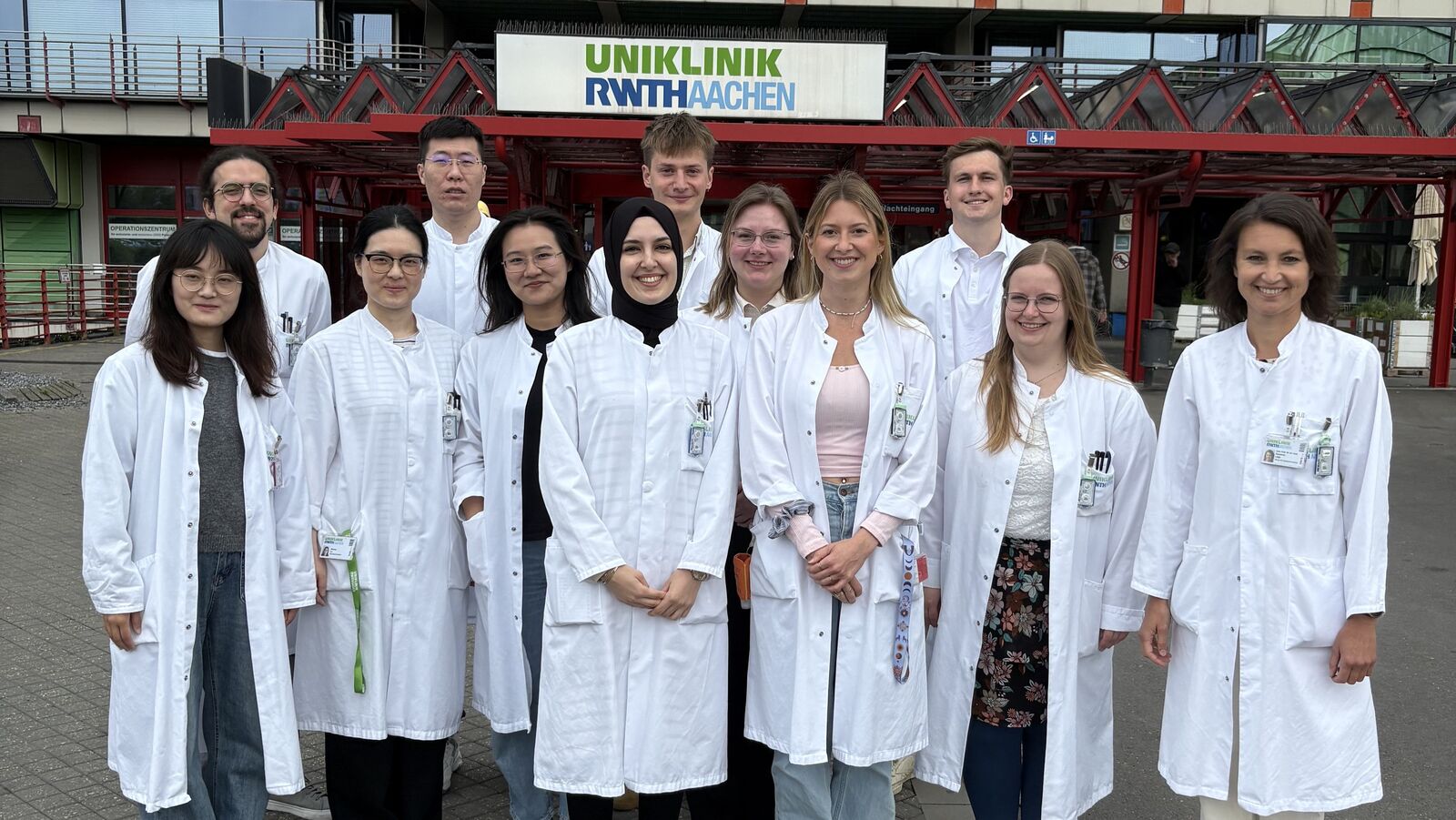
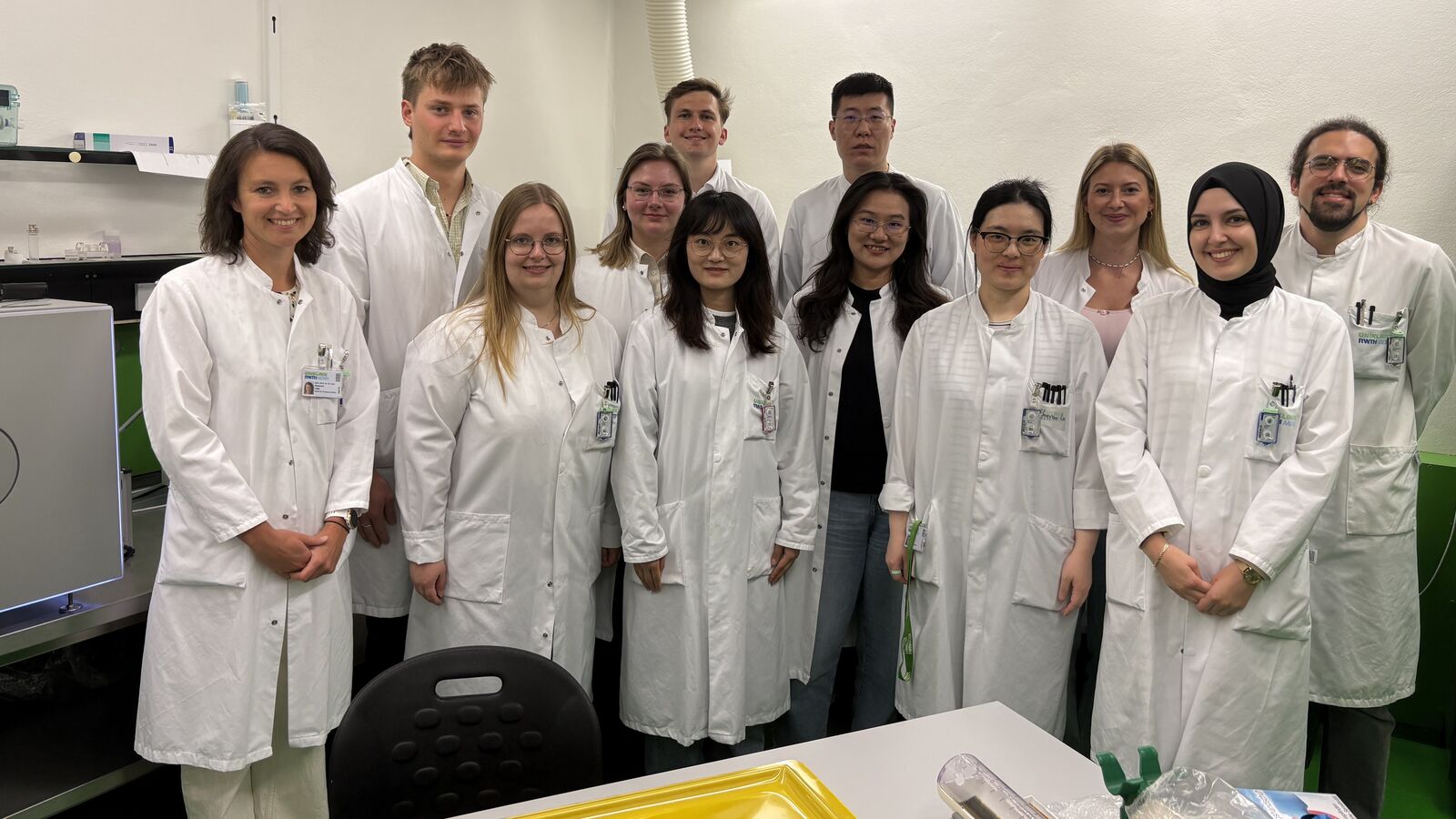
Are you interested in working in the field of nuclear medicine? The following opportunities are available:
- Bachelor's thesis
- Master's thesis
- Dr. med.
- Dr. rer. medic.
- Promotionskolleg
- TANDEM program
- PhD in cooperation with UMC Maastricht
- Clinical traineeship
- Residency Nuclear Medicine
